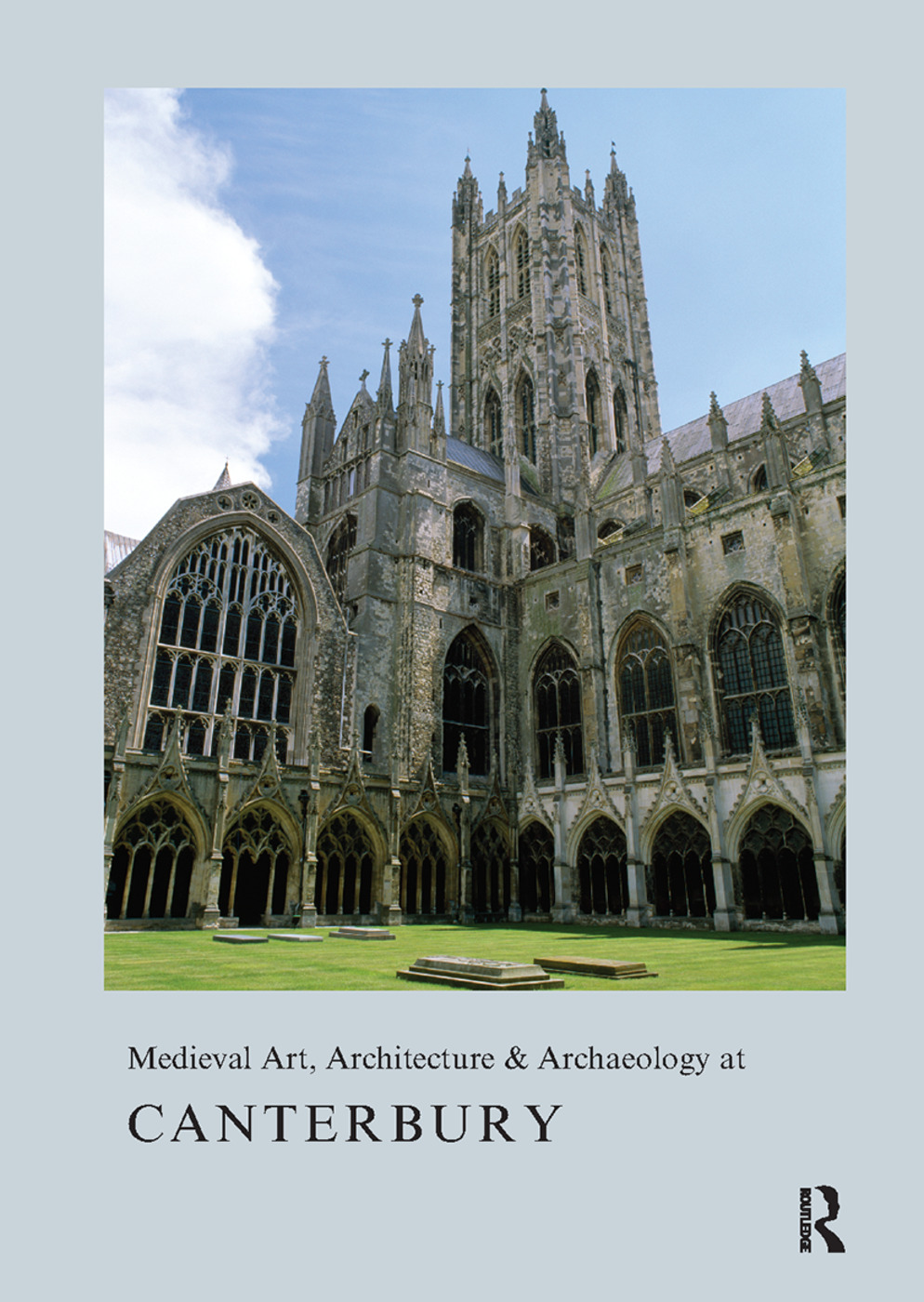From the time of the foundation of its cathedral in 597, Canterbury has been the epicentre of Britain’s ecclesiastical history, and an exceptionally important centre for architectural and visual innovation. Focusing especially but not exclusively on Christ Church cathedral, this legacy is explored in seventeen essays concerned with Canterbury’s art, architecture and archaeology between the early Anglo-Saxon period and the close of the middle ages.
Papers consider the relationship between between architectural setting and liturgical practice, and between stationary and movable fittings, while fresh insights are offered into the aesthetic, spiritual, and pragmatic considerations that shaped the fabric of Christ Church and St Augustine’s abbey, alongside critical reflections on Canterbury’s historiography and relationship to the wider world. Taken together, these studies demonstrate the richness of the surviving material, and its enduring ability to raise new questions.
Table of Contents
Chapter 1: Alexandrina Buchanan, ‘Complete, thorough and undeniable’: Robert Willis and The Architectural History of Canterbury Cathedral
Chapter 2: Richard Gem, The Rebuilding of Canterbury Cathedral by Archbishop Wulfred (805–32)
Chapter 3: Helen Gittos, Sources for the Liturgy of Canterbury Cathedral in the Central Middle Ages
Chapter 4: T. A. Heslop, St Anselm and the Visual Arts at Canterbury Cathedral, 1093–1109
Chapter 5: Peter Fergusson, The Entry Complex at the Cathedral Priory
Chapter 6: Peter Draper, Recent Interpretations of the Late-12th-Century Rebuilding of the East End of Canterbury Cathedral and its Historical Context
Chapter 7: Costanza Cipollaro and Veronika Decker, Shaping a Saint’s Identity: The Imagery of Thomas Becket in Medieval Italy
Chapter 8: Nicola Coldstream, The Nova Opera of Prior Henry of Eastry
Chapter 9: Laura Cleaver, The Monks’ Library at Christ Church Canterbury c. 1180–c. 1250
Chapter 10: Jeffrey West, The Romanesque Screen at Canterbury Cathedral Reconsidered
Chapter 11: Jane Geddes, The Ferramenta of the Oculi at Canterbury Cathedral
Chapter 12: Toby Huitson, The Mystery of the So-Called ‘Old Bakery’ Chamber above St Anselm’s Chapel, Canterbury Cathedral
Chapter 13: Lesley Milner, The Canterbury vestiarium: Why Did it Combine the Roles of Treasury and Cemetery Arch?
Chapter 14: Heather Gilderdale Scott, The Royal Window (c. 1485) at Canterbury Cathedral and the Magnificat Window (c. 1500) at Great Malvern Priory (Worcs.): Dynastic Rivalry in Late Medieval England?
Chapter 15: Francis Woodman, Kinship and Architectural Patronage in Late Medieval Canterbury: The Hollands, the Lady Chapel and the Empty Tomb
Chapter 16: Julian Luxford, The Great Gate of St Augustine’s Abbey: Architecture and Context
Chapter 17: Michael Michael, ‘Vere hortus noster deliciarum est Anglia’: John of Thanet, the Madonna Master and a Fragment of English Medieval Embroidery
